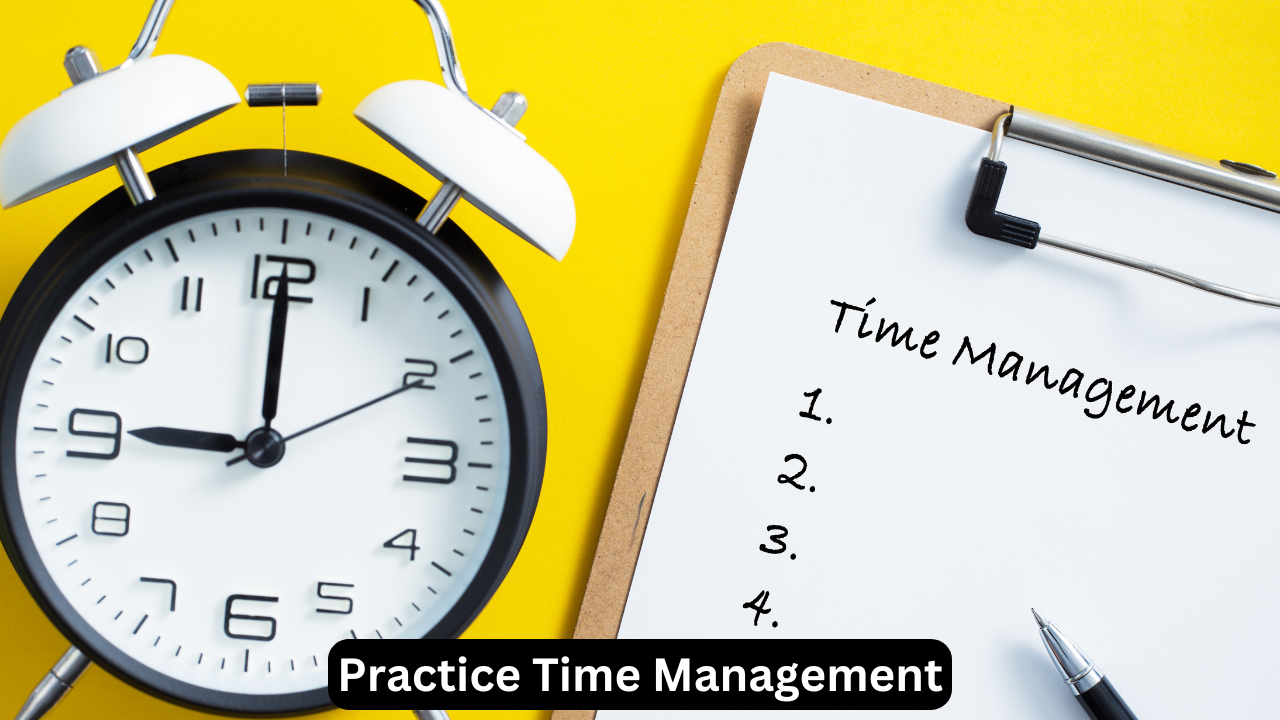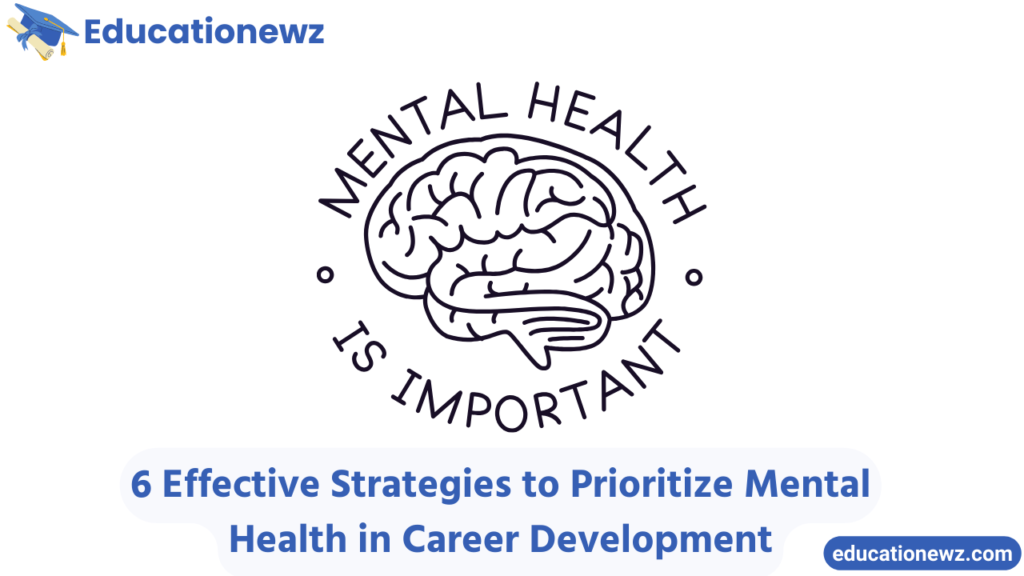Integrating mental health into career development improves resilience, boosts productivity, and ensures long-term success by addressing both professional and emotional well-being.
In today’s fast-paced world, the emphasis on career development has grown exponentially. Everyone strives for professional success, aiming to climb the corporate ladder or establish their own businesses. However, what often gets overlooked in these aspirations is the importance of mental health in fostering sustained career growth. Integrating mental health into career development is crucial because mental wellness directly affects motivation, productivity, and overall job satisfaction. While most career development plans focus on technical skills, qualifications, and experience, the state of an individual’s mental health plays a pivotal role in determining the trajectory of their career.
The Link Between Mental Health and Career Development
Mental health and career development are intricately linked. A person’s ability to manage stress, cope with workplace challenges, and stay resilient in the face of setbacks is essential for career progression. Mental health problems like anxiety, depression, and burnout can impede an individual’s ability to perform at their best. In contrast, individuals who prioritize their mental well-being tend to show higher levels of engagement, creativity, and innovation in their careers. When mental health is given equal importance as professional skills, the foundation for a balanced, successful career is established.
Key Aspects of Mental Health in Career Development:
- Emotional resilience to cope with stress and adversity
- Healthy work-life balance to prevent burnout
- Cognitive clarity for problem-solving and decision-making
- Improved communication and interpersonal skills, essential for networking and leadership
The Role of Employers in Supporting Mental Health

Employers have a significant role to play in promoting mental health within the workplace. Career development programs should not only focus on skills but also provide resources for mental wellness. Creating a supportive environment where employees feel safe to discuss mental health challenges is critical for their overall success. Companies that invest in mental health support programs, such as counseling services, stress management workshops, and flexible work arrangements, see higher employee satisfaction and retention.
Best Practices for Employers to Promote Mental Health:
- Offer mental health resources, such as Employee Assistance Programs (EAPs)
- Encourage open conversations about mental health to reduce stigma
- Implement flexible working hours or remote work options to reduce stress
- Organize stress-relief activities such as yoga, meditation, and wellness seminars
Addressing Mental Health Challenges in Career Development
Despite the growing recognition of the importance of mental health, several barriers exist that prevent individuals from seeking help. In many cultures, there’s still a stigma associated with mental health issues, leading people to hide their struggles for fear of being judged or not taken seriously. This can have a long-term impact on career development as it may prevent individuals from accessing the resources they need to succeed.
To overcome these barriers, it is important for both employees and employers to prioritize mental health. Companies should offer confidential counseling services, and individuals should be encouraged to seek help when needed. Furthermore, training managers to recognize the signs of mental distress and fostering a workplace culture of empathy and support can make a significant difference.
Strategies for Personal Career Development with Mental Health in Mind
Developing a healthy mindset is just as important as acquiring professional skills when it comes to career development. Here are several strategies for integrating mental health into your personal career plan:
1. Establish Clear Career Goals
Having clear, well-defined career goals can reduce uncertainty and anxiety, making it easier to manage expectations. Break down large goals into smaller, achievable milestones to reduce the pressure that comes with long-term objectives.
2. Build Emotional Resilience
Resilience is the ability to bounce back from setbacks. Building emotional resilience involves learning how to manage stress and stay positive even in challenging situations. Techniques such as mindfulness meditation, journaling, and regular physical activity can help improve mental health and increase resilience.
3. Develop Healthy Work-Life Balance
Maintaining a work-life balance is essential for long-term career success. Overworking and neglecting personal well-being can lead to burnout and decreased productivity. Set boundaries between work and personal life, and make time for activities that recharge you, such as spending time with loved ones or pursuing hobbies.
4. Cultivate Self-Awareness
Being self-aware means understanding your strengths, weaknesses, and emotions. Self-awareness helps you make informed career decisions that align with your personal values and mental health needs. Regular self-reflection, seeking feedback from others, and working with a mentor can aid in this process.
5. Seek Support When Needed
Recognizing when you need help is crucial to maintaining mental health while navigating your career. Seeking support, whether from a mentor, coach, or mental health professional, can provide guidance and help you overcome challenges. Having a strong support system can also reduce feelings of isolation, which is important for sustaining motivation and productivity. Additionally, professional counseling or peer support groups can offer valuable coping mechanisms for stress and anxiety.
6. Practice Time Management

Effective time management is key to balancing work responsibilities and mental well-being. Procrastination and poor time management can cause stress and negatively impact your mental health. Setting clear priorities, creating daily schedules, and breaking tasks into manageable steps can help reduce anxiety and boost productivity. Prioritizing tasks allows you to focus on what’s most important and gives you the flexibility to take breaks and recharge when necessary.
The Importance of Professional Development Programs in Mental Health
Professional development programs are an excellent opportunity to combine career development with mental health strategies. Many programs now offer training on emotional intelligence, stress management, and leadership skills—all of which are crucial for maintaining mental health while advancing in your career.
Investing in training sessions that focus on emotional regulation, conflict resolution, and mindfulness can significantly enhance one’s career development while ensuring emotional well-being. These programs foster a balanced approach to professional growth, ensuring that individuals develop not only their technical expertise but also their mental fortitude.
Building a Supportive Career Development Plan
A comprehensive career development plan should include strategies for both professional growth and mental well-being. When creating a career plan, consider the following key components:
| Component | Description |
|---|---|
| Career Goals | Short-term and long-term professional objectives |
| Mental Health Goals | Practices for stress management, emotional resilience, and balance |
| Resources | Access to mental health support, training, and development opportunities |
| Review and Adjust | Regular check-ins to ensure goals are being met and mental health is prioritized |
By integrating both career and mental health goals, individuals can ensure long-term success in their careers without sacrificing their well-being.
Challenges of Ignoring Mental Health in Career Development
Ignoring mental health in career development can lead to severe consequences. The pressure to constantly perform at high levels without addressing mental health needs can result in burnout, reduced motivation, and disengagement. People may experience anxiety and depression, which can cause them to lose interest in their work, leading to lower productivity and job satisfaction.
Furthermore, ignoring mental health can also impact relationships with coworkers and managers, hindering collaboration and networking opportunities. Individuals may find it harder to build meaningful connections, which are essential for career advancement.
Benefits of Integrating Mental Health in Career Development
On the other hand, when mental health is prioritized alongside professional goals, the benefits are far-reaching. Employees who feel supported in their mental health are more likely to be engaged in their work and experience higher levels of job satisfaction. Additionally, by integrating mental health into career development, organizations can reduce turnover rates and enhance overall employee performance.
The Future of Career Development with Mental Health Integration

As more companies and individuals recognize the importance of mental health in career development, we are likely to see a significant shift in workplace culture. Mental health integration will become an essential component of career development strategies, making it just as important as acquiring technical skills and professional experience.
In the future, we can expect to see more workplaces offering mental health programs, employee assistance resources, and wellness initiatives. Furthermore, professionals will be encouraged to take a holistic approach to their careers, addressing both personal and professional growth. This approach will lead to healthier, more fulfilled individuals who are capable of achieving long-term success in their careers.
FAQs About Integrating Mental Health in Career Development
- Why is mental health important in career development? Mental health is crucial for career development as it affects an individual’s ability to manage stress, stay motivated, and perform effectively at work. Mental well-being contributes to emotional resilience, creativity, and overall job satisfaction.
- How can employers promote mental health in the workplace? Employers can promote mental health by offering mental health resources, creating a supportive environment, and encouraging open discussions about mental health challenges. Providing flexible work arrangements and wellness programs can also help.
- What are the signs of burnout in career development? Signs of burnout include chronic fatigue, reduced motivation, disengagement from work, irritability, and a lack of fulfillment. It is essential to address burnout early to maintain long-term career success.
- How can I balance work and mental health? Maintaining a work-life balance involves setting boundaries between work and personal life, taking regular breaks, and engaging in activities that help reduce stress, such as exercising, meditating, or spending time with loved ones.
- Can professional development programs include mental health training? Yes, many professional development programs now include mental health training. Topics such as emotional intelligence, stress management, and conflict resolution are becoming integral parts of career growth initiatives.
- How do I develop emotional resilience for my career? Emotional resilience can be developed by practicing mindfulness, staying positive in the face of challenges, and learning to manage stress effectively. Building a support system and engaging in self-care practices also helps strengthen resilience.
- What resources can help with mental health in career development? Resources include Employee Assistance Programs (EAPs), counseling services, stress management workshops, and mindfulness training programs. It’s also beneficial to work with a mentor or coach who can guide you in managing both career and mental health challenges.
- How can I incorporate mental health goals into my career development plan? You can incorporate mental health goals by setting aside time for self-care, attending mental wellness workshops, and prioritizing work-life balance. Regularly review your progress and adjust your goals as needed to ensure both personal and professional growth.
Conclusion: A Holistic Approach to Career Development
Integrating mental health into career development is not just a trend but a necessity for long-term success and fulfillment. When individuals and organizations prioritize mental well-being alongside professional growth, they set the stage for sustained career success. By adopting strategies that focus on emotional resilience, stress management, and work-life balance, both employees and employers can foster a thriving, productive workforce that is well-equipped to tackle challenges while maintaining their mental health. Please follow our blog Educationewz.



